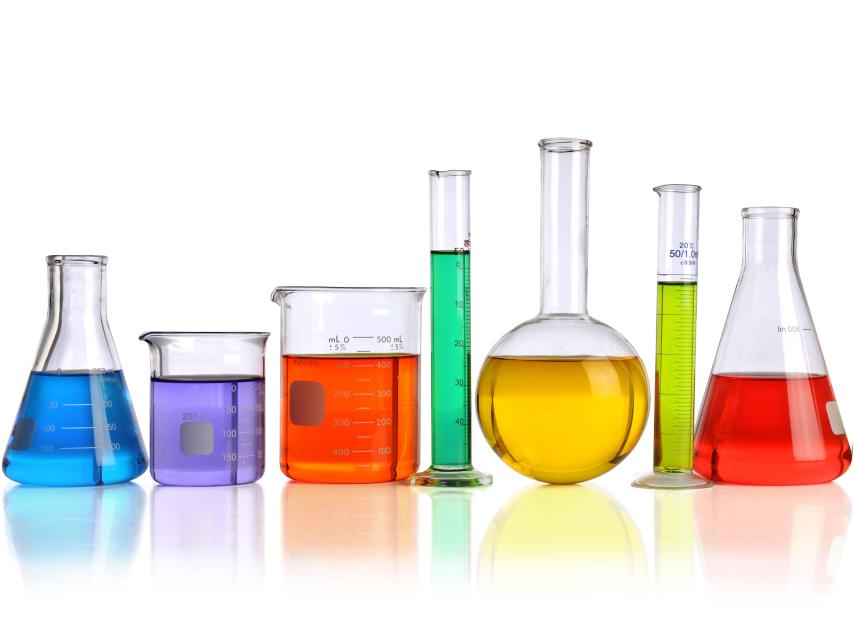Refractory Brick Inorganic Chemical Composition Testing
The process of testing refractory brick inorganic chemical composition is critical for ensuring the quality, durability, and performance of materials used in high-temperature industrial applications. Refractory bricks are essential components in furnaces, kilns, and other heat treatment facilities across various sectors such as steel production, cement manufacturing, glass processing, and petrochemical refining.
Inorganic compounds in refractory bricks play a pivotal role in determining the brick's thermal shock resistance, chemical stability, and mechanical strength. The testing of these compounds ensures that the materials meet stringent industry standards and specifications. This service involves analyzing various elements such as aluminum oxide (Al₂O₃), silicon dioxide (SiO₂), magnesia (MgO), calcium oxide (CaO), and others.
The primary objective is to identify the exact composition of each inorganic compound within a refractory brick specimen. This detailed analysis helps manufacturers and end-users ensure that the bricks are suitable for their specific applications, thereby enhancing operational efficiency and reducing maintenance costs.
Our testing methodology adheres to international standards such as ISO 6872:2015 and ASTM C94-18a, ensuring accuracy and reliability. Specimen preparation involves precise cutting and grinding of the brick into a fine powder suitable for X-ray fluorescence (XRF) analysis. The resulting data provides comprehensive insights into the inorganic composition.
The process is not only crucial for quality control but also supports ongoing research and development efforts aimed at improving material properties. By understanding the exact chemical makeup, researchers can explore new formulations that enhance performance under extreme conditions.
Our advanced testing facilities use state-of-the-art equipment to perform these analyses efficiently and accurately. The results are presented in a detailed report including charts and graphs for easy interpretation by stakeholders involved in project management or compliance.
| Element | Standard Range (%) | Tested Method |
|---|---|---|
| Aluminum Oxide (Al₂O₃) | 45-60 | XRF Analysis |
| Silicon Dioxide (SiO₂) | 18-25 | ICP-OES |
| Magnesia (MgO) | 0.5-3 | XRF Analysis |
| Calcium Oxide (CaO) | 1-6 | ICP-OES |
The accuracy and precision of our testing services are paramount. We employ highly skilled technicians who adhere strictly to established protocols, ensuring reliable outcomes every time.
This service is particularly beneficial for industries reliant on high-temperature processes where material integrity is crucial. It ensures compliance with international standards while providing valuable data that can drive innovation within your organization.
Customer Impact and Satisfaction
The results of our refractory brick inorganic chemical composition testing directly impact customer satisfaction by ensuring product reliability and performance. By providing accurate and reliable data, we enable customers to make informed decisions regarding material selection.
For quality managers, this service offers peace of mind knowing that the materials they purchase meet all necessary standards. Compliance officers benefit from having robust evidence supporting adherence to regulatory requirements. R&D engineers gain valuable insights into potential improvements for future generations of products.
The accuracy and consistency of our reports enhance trust between suppliers and buyers, fostering long-term relationships based on mutual respect and reliability. Our commitment to excellence ensures that customers receive high-quality services tailored specifically to their needs.
Competitive Advantage and Market Impact
The ability to accurately test the inorganic chemical composition of refractory bricks provides significant competitive advantages. It allows companies to differentiate themselves by offering products that meet or exceed industry standards.
By using our testing services, manufacturers can ensure their products are consistent with global norms, which is increasingly important as international markets expand. This consistency not only enhances brand reputation but also opens up new opportunities for growth and expansion into untapped regions.
For procurement departments, reliable test results help them select the best suppliers and materials available in the market. This strategic approach ensures that they get the highest quality at competitive prices, thereby optimizing their supply chain operations.
Use Cases and Application Examples
| Application | Description |
|---|---|
| Steel Production Furnaces | Ensuring the refractory bricks used withstand harsh conditions without degradation. |
| Cement Kilns | Testing for optimal thermal stability and longevity of kiln linings. |
| Glass Melting Tanks | Verifying the brick composition to maintain consistent melt temperatures. |
| Petrochemical Refineries | Evaluating brick integrity under extreme heat and corrosive environments. |
The application of these tests extends beyond mere compliance; they also contribute significantly towards reducing operational costs by preventing premature failures. For example, in steel production, faulty bricks can lead to downtime, increased energy consumption, and higher maintenance expenses. Regular testing helps avoid such issues.
Another key benefit lies in the ability to identify potential areas for improvement within existing products or during the development phase of new ones. This proactive approach ensures continuous enhancement of product quality and customer satisfaction.





